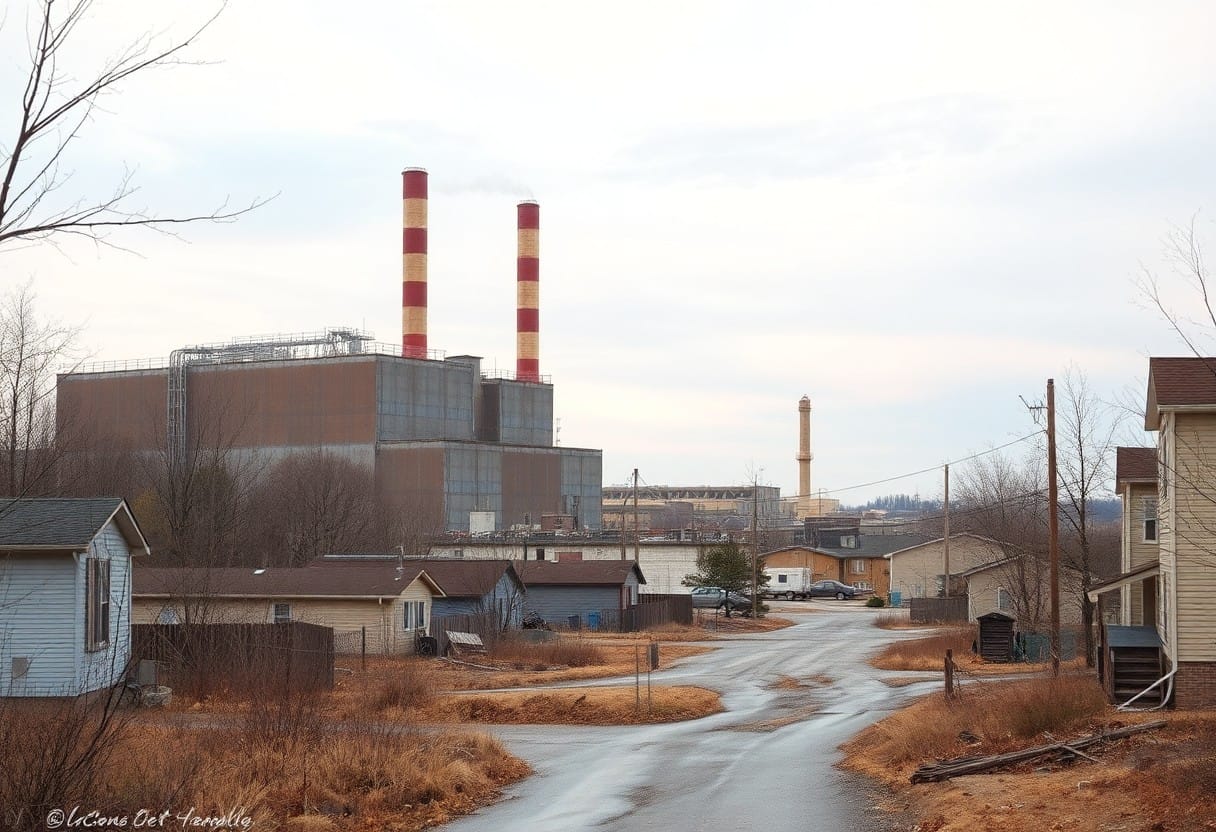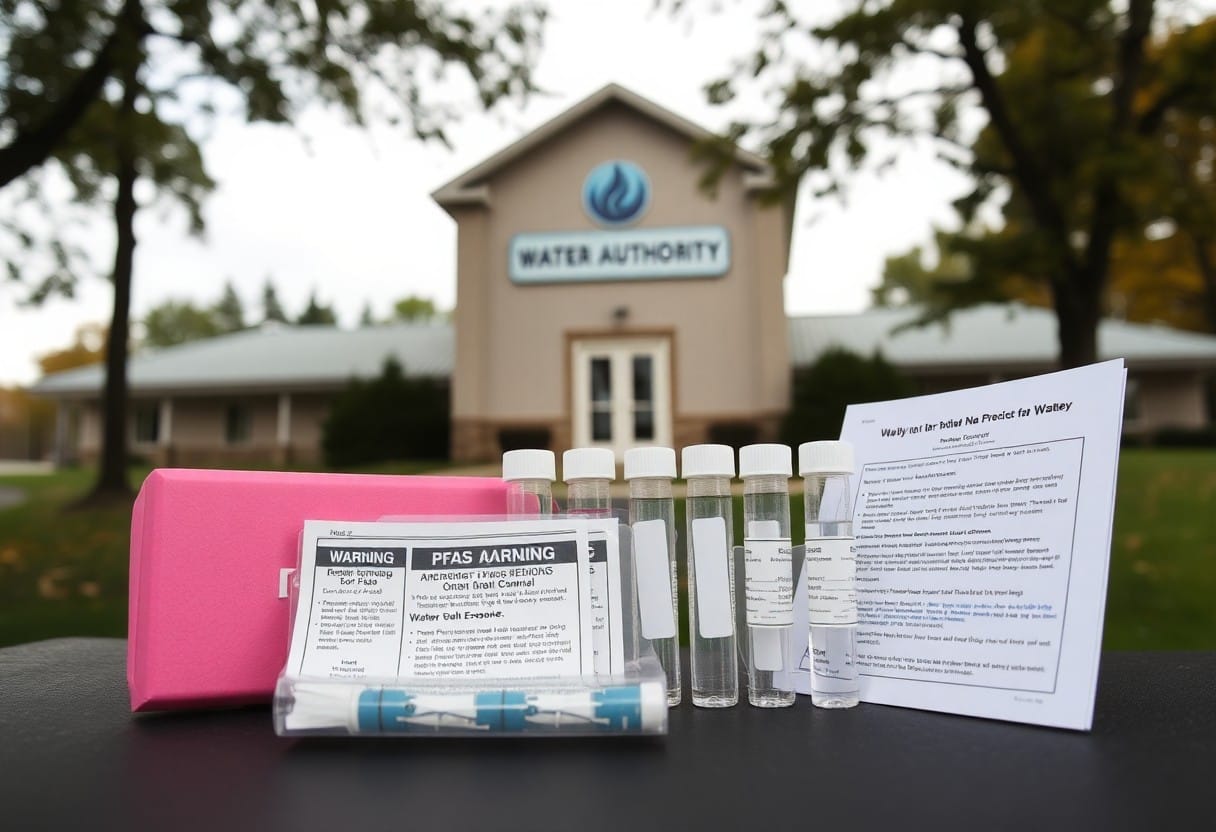Contamination from PFOA and PFOS has raised significant concerns for your children’s health. The recent discoveries of PFAS chemical compounds found in foam in a stream near Fayetteville highlight the potential risks these chemicals present. Exposure to such contaminants can lead to a variety of health issues, raising alarms for many parents like you. In this post, we will explore what Chemours’ contamination means for your family’s well-being and necessary actions you might consider.
Understanding Chemours and Contamination
The Chemours Company, a spin-off from DuPont, is primarily known for manufacturing chemicals such as Teflon and other fluorinated substances. However, their operations have led to significant environmental pollution, particularly in and around Fayetteville. This contamination poses serious risks to both the environment and public health, especially for your families and children. Understanding the implications of Chemours’ activities is necessary for safeguarding your community.
Overview of Chemours
For decades, Chemours has been involved in producing industrial chemicals that, while beneficial for various applications, have been linked to harmful environmental and health impacts. Their Fayetteville facility has been at the center of pollution concerns, raising alarms among local residents about the safety of drinking water and surrounding ecosystems.
Nature of Contaminants
To better grasp the situation, it’s important to understand the types of contaminants released by Chemours. These include per- and polyfluoroalkyl substances (PFAS), which are notorious for their persistence in the environment and potential health effects. They do not break down easily and can accumulate in your body over time, leading to various health risks.
Considering the nature of these contaminants, you should be aware that PFAS are linked to serious health issues, including reproductive and developmental harm, as well as an increased risk of certain cancers. Their persistent nature in the environment means that once released, they can contaminate water supplies and harm local wildlife for generations. Understanding these risks is vital for you and your family’s health, as well as for the future generations in your community.
Health Risks Associated with Chemical Exposure
Assuming your family lives in or near Fayetteville, it’s vital to understand the health risks associated with chemical exposure from Chemours. Exposure to hazardous substances can lead to various health issues, ranging from mild symptoms to serious chronic conditions. Recognizing these risks will empower you to take proactive measures in safeguarding your children’s health.
Immediate Health Effects
On exposure to contaminated water or air, you might notice immediate health effects such as respiratory issues, skin irritation, or gastrointestinal problems. These symptoms can vary significantly among individuals, particularly affecting children who may be more sensitive to pollutants.
Long-term Risks for Children
By understanding the potential long-term risks, you can better prepare your family for the future. Prolonged exposure to chemicals can result in serious health complications for your children, leading to developmental delays, respiratory illnesses, and even an increased risk of certain cancers. Ensuring a clean environment is vital, as these risks often manifest later in life, making regular health check-ups and monitoring imperative.
Risks associated with long-term exposure to chemicals can be significant, especially for children whose bodies are still developing. Research indicates that exposure can impact their cognitive functions, resulting in learning disabilities and behavioral issues. Additionally, persistent exposure could affect their immune systems, leaving them vulnerable to infections and other chronic health problems. Taking immediate action to reduce exposure can help minimize these potential risks and promote a healthier future for your children.
Impact on Fayetteville Community
Some residents of Fayetteville are facing the ongoing consequences of Chemours’ contamination. The pervasive issue affects not only the health of your family but also the overall well-being of the community. There is an urgent need for solutions and support to foster a safer environment for everyone in the area.
Environmental Consequences
Along with the health risks associated with chemical exposure, the contamination has led to significant damage to local ecosystems. Water sources critical for your family’s activities have been affected, resulting in long-term implications for wildlife and plant life in Fayetteville.
Socioeconomic Effects
Between rising healthcare costs and decreasing property values, the contamination has severely affected the local economy. As a parent, you may see your community struggling to recover, further exacerbating stress and uncertainty for your family’s future.
At this juncture, the socioeconomic effects of the contamination are becoming increasingly evident. Local businesses have experienced declining sales due to residents prioritizing health and safety, while property values are on the decline as people become wary of residing in affected areas. Additionally, you are likely facing increased healthcare expenses related to contamination-related illnesses, which can be overwhelming. These factors not only disrupt your everyday life but also challenge the overall economic stability of Fayetteville, putting immense pressure on families striving for a healthy, secure future.
Current Regulatory Actions
All ongoing regulatory actions are crucial for addressing the contamination caused by Chemours. The government is currently evaluating water safety standards and setting guidelines to limit hazardous substances in your environment. These actions aim to safeguard your family’s health and ensure that the cleanup process is thorough and effective.
Government Response
Against the backdrop of growing concerns, government agencies have initiated investigations and are proposing stricter regulations. This response aims to enhance monitoring of water quality and ensure accountability from Chemours in managing the contamination. You can expect updates and transparency regarding the safety measures being implemented in your community.
Community Advocacy
Against the challenges posed by contamination, local residents have mobilized to demand action and accountability from Chemours and regulatory bodies. Community advocacy groups are your allies in fighting for better environmental standards and health protections. Their efforts play a significant role in raising awareness and ensuring that your voice is heard in this critical issue.
Community advocacy has emerged as a powerful force in addressing the contamination crisis. Grassroots organizations are working tirelessly to educate you and your neighbors about the potential health risks associated with the contamination. They are also organizing events and meetings to influence policymakers, ensuring that your concerns are prioritized. Through effective collaboration, the community can push for more stringent regulations and hold responsible parties accountable, fostering a safer environment for you and your family.
What Parents Should Know
To navigate the implications of Chemours’ contamination, it is vital for you to stay informed about the potential health risks to your children. Understanding the presence of harmful per- and polyfluoroalkyl substances (PFAS) in the environment and their possible effects on your family’s well-being is vital. Engaging with local health authorities and staying updated on testing and remediation efforts will empower you to make informed decisions about your children’s safety.
Precautionary Measures
Parents should consider implementing several precautionary measures to minimize exposure to contaminants. Regularly check water quality reports, utilize water filters certified to remove PFAS, and limit your family’s intake of affected local produce and fish. By actively monitoring these sources, you can better protect your children’s health and reduce potential risks.
Resources for Concerned Families
To access valuable information and support regarding Chemours’ contamination, explore local and national resources dedicated to public health and environmental safety. Organizations such as the North Carolina Department of Health and Human Services and the Pfas Project Lab offer resources that can guide your family through this challenging situation.
Also, consider reaching out to local advocacy groups that focus on community health and contamination issues. They can provide updates on legal actions related to the contamination, as well as information about upcoming community meetings or forums where you can voice your concerns. These resources will help you stay connected with other concerned families while gaining important insights about the ongoing efforts to address the situation affecting your children’s health.

Future Considerations
Once again, you must be aware that the ongoing contamination from Chemours poses long-term health risks to your family. As outlined in Forever chemicals, forever concerns: Cape Fear River and …, the implications of these chemicals extend beyond today, potentially affecting your children’s health for years to come.
Ongoing Research
Around the nation, scientists are actively investigating the long-term impacts of PFAS exposure. Continued research aims to provide clearer insights regarding the health risks associated with these chemicals, ensuring that you have access to the latest findings that can inform your family’s health decisions.
Potential Policy Changes
Among the anticipated changes, lawmakers are beginning to address the need for more stringent regulations regarding PFAS emissions. Your advocacy for policy reform can help push for necessary measures that protect your children from these toxic substances.
Hence, understanding potential policy changes is vital. Legislators are increasingly recognizing the responsibility to limit PFAS exposure through stricter industrial regulations and monitoring practices. By supporting these changes, you contribute to a safer environment for your children. Effective policies could significantly reduce the levels of contamination in water supplies and soil, ultimately protecting your family’s health and wellbeing. Staying informed and engaged in local discussions will empower you to advocate for meaningful solutions against PFAS contamination.
Conclusion
From above, it’s clear that Chemours’ contamination poses significant risks to your children’s health and well-being. As a parent in Fayetteville, understanding the implications of this pollution is important for protecting your family. Staying informed about potential exposure, advocating for transparency, and ensuring that your children have a safe environment to grow up in will empower you to take action. Your awareness can help foster a community that prioritizes the health of its youngest members, leading to stronger advocacy for change and remediation efforts.



















